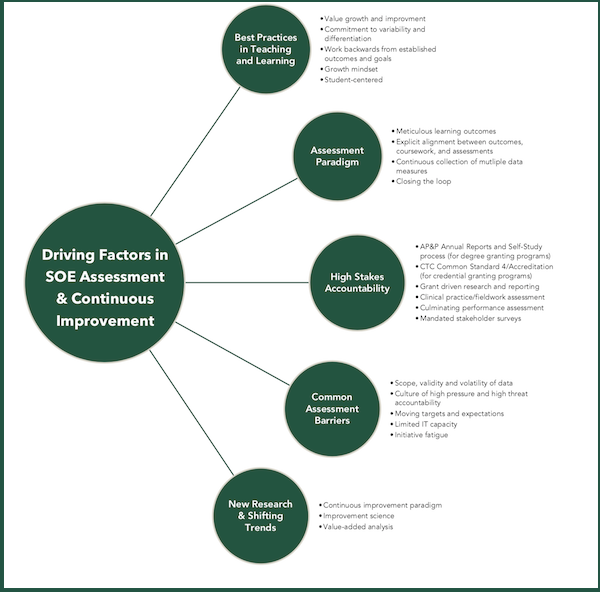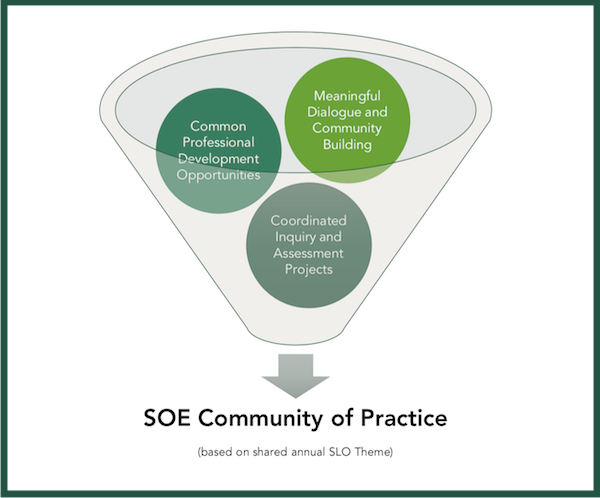The education unit and its programs regularly assess their effectiveness in relation to the course of study offered, fieldwork and clinical practice, and support services for candidates.
Developing a Comprehensive Plan and Community of Practice: The School of Education (SOE) at Cal Poly is dedicated to being a learning organization that engages in intentional continuous improvement. We regularly and intentionally engage in reflection, collaboration, discussion protocols, and improvement projects driven by data, student learning artifacts, and stakeholder feedback. Grounded in Cal Poly’s signature pedagogy of Learn by Doing, our faculty work intersects theory and practice through scholarship and exploration of the cutting edge practices in partnership with K-12 Schools and local community colleges. Local partner districts serve as living laboratories in our collaborative efforts to improve educational opportunities for all learners. We recognize and approach comprehensive assessment as process of conducting research, using the data collection to identify and strengthen our impact on candidate preparedness, student learning, research theory, and our local community.

In 2017, the SOE Coordinating Council meaningfully revised the unit's Comprehensive Assessment Plan and our unitwide learning themes, with an aim to create a coordinated and intentional approach to assessment that supports a more collective learning and improvement community. The SOE committed to an aim of developing more streamlined and intentional assessment practices across the SOE, responding to identified needs without increasing demands on limited time and personnel resources. Drilling down into the needs and core principles of the unit, the SOE developed four major change ideas: to revise the unit's Learning Objectives to better exemplify shared principles across disciplines; to articulate a shared comprehensive improvement and assessment cycle; to create space for shared learning and improvement through a Community of Practice; and to develop a collaborative Wiki website of resources and dialogue. Over the course of the 2017-18 academic year, these changes took shape.

Currently, the SOE annually plans efforts to support shared assessment, continuous improvement, dialogue, and professional development, anchored by one of the unit's new Learning Themes.